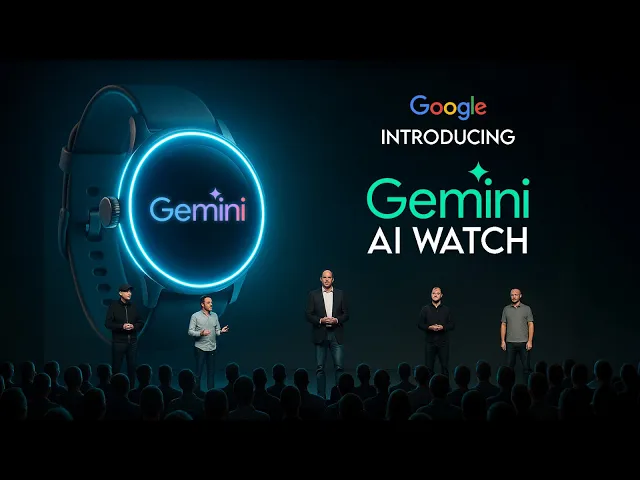Google’s New GEMINI AI Watch, ChatGPT Update, Optimus Update + More AI & Robotics News

Google's $399 Gemini Nano watch changes everything
The wearable AI revolution has arrived with little fanfare but enormous implications. Google's announcement of its Gemini Nano-powered Pixel Watch represents the first serious effort to bring on-device AI processing to our wrists, potentially transforming how we interact with technology throughout our day. As AI becomes more personal and more portable, the line between human capabilities and technological assistance continues to blur in ways both fascinating and concerning.
Key developments in AI and robotics
- Google's Pixel Watch with Gemini Nano marks the first mainstream wearable with on-device AI processing capabilities, priced at just $399 and offering functionality previously unimaginable in such a small form factor
- OpenAI's ChatGPT updates have introduced enhanced voice mode features and memory capabilities that enable more personalized, contextual interactions while raising important questions about data collection
- Tesla's Optimus robot is making rapid progress toward commercialization, with CEO Elon Musk projecting sales beginning next year, despite ongoing skepticism from robotics experts about timeline feasibility
The wearable AI inflection point has arrived
The most significant development by far is Google's integration of Gemini Nano into its Pixel Watch. This represents a genuine paradigm shift in wearable computing. Unlike previous smartwatches that essentially functioned as notification screens or fitness trackers, the Gemini-powered watch can process complex AI tasks directly on the device without cloud dependence.
This matters tremendously because it fundamentally changes the relationship between humans and AI assistants. When artificial intelligence lives on your wrist rather than in remote data centers, the interaction becomes more immediate, more private, and more integrated into daily decision-making. The $399 price point also democratizes access to sophisticated AI in a way we haven't seen before.
The industry implications are substantial. Apple, Samsung, and other wearable manufacturers will need to respond quickly or risk being left behind in what could be the next major computing platform shift. More importantly, this represents the beginning of truly ambient computing—AI that's always with you, always available, always learning, without the friction of pulling out a phone or opening a laptop.
When AI becomes truly personal
Google's implementation of Gemini Nano
Recent Videos
How To Earn MONEY With Images (No Bullsh*t)
Smart earnings from your image collection In today's digital economy, passive income streams have become increasingly accessible to creators with various skill sets. A recent YouTube video cuts through the hype to explore legitimate ways photographers, designers, and even casual smartphone users can monetize their image collections. The strategies outlined don't rely on unrealistic promises or complicated schemes—instead, they focus on established marketplaces with proven revenue potential for image creators. Key Points Stock photography platforms like Shutterstock, Adobe Stock, and Getty Images remain viable income sources when you understand their specific requirements and optimize your submissions accordingly. Specialized marketplaces focusing...
Oct 3, 2025New SHAPE SHIFTING AI Robot Is Freaking People Out
Liquid robots will change everything In the quiet labs of Carnegie Mellon University, scientists have created something that feels plucked from science fiction—a magnetic slime robot that can transform between liquid and solid states, slipping through tight spaces before reassembling on the other side. This technology, showcased in a recent YouTube video, represents a significant leap beyond traditional robotics into a realm where machines mimic not just animal movements, but their fundamental physical properties. While the internet might be buzzing with dystopian concerns about "shape-shifting terminators," the reality offers far more promising applications that could revolutionize medicine, rescue operations, and...
Oct 3, 2025How To Do Homeless AI Tiktok Trend (Tiktok Homeless AI Tutorial)
AI homeless trend raises ethical concerns In an era where social media trends evolve faster than we can comprehend them, TikTok's "homeless AI" trend has sparked both creative engagement and serious ethical questions. The trend, which involves using AI to transform ordinary photos into images depicting homelessness, has rapidly gained traction across the platform, with creators eagerly jumping on board to showcase their digital transformations. While the technical process is relatively straightforward, the implications of digitally "becoming homeless" for entertainment deserve careful consideration. The video tutorial provides a step-by-step guide on creating these AI-generated images, explaining how users can transform...
